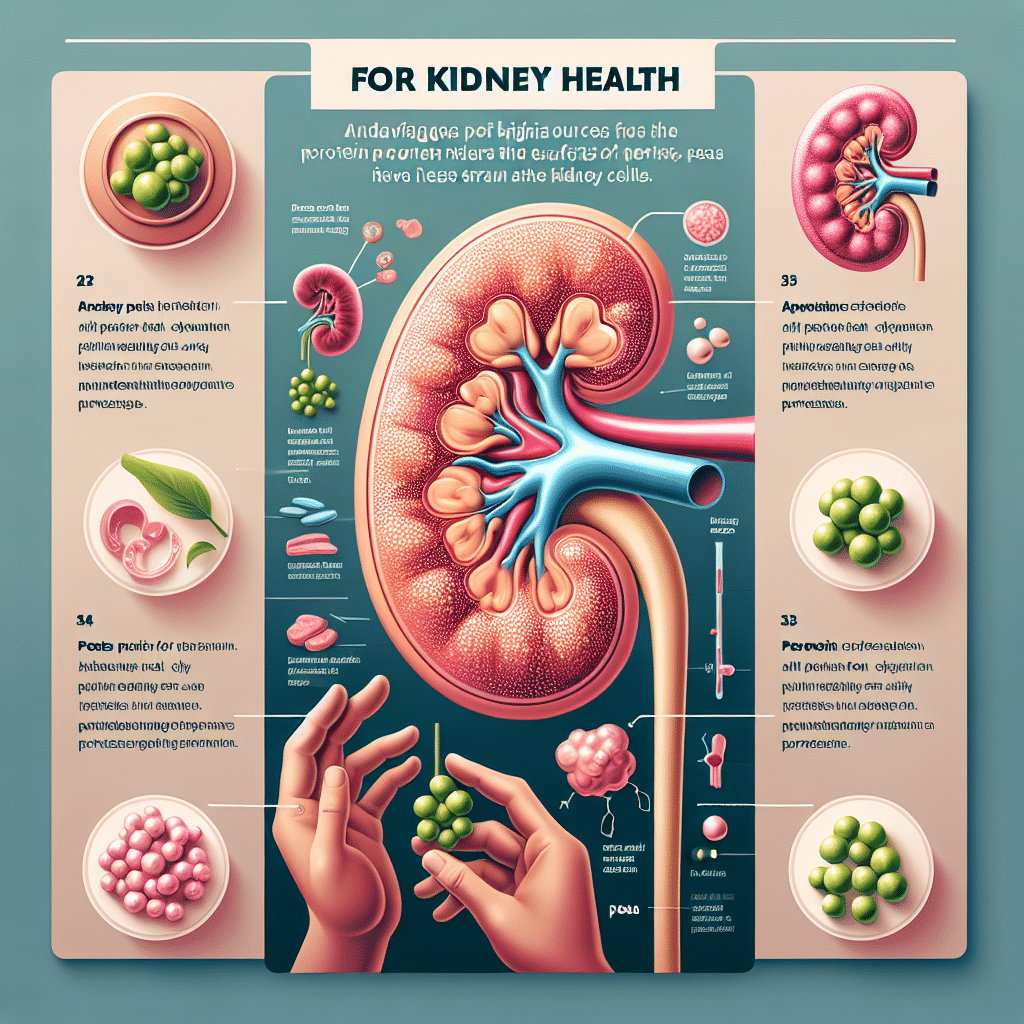Is Pea Protein Easier On Kidneys? Learn More
Table of Contents
- Pea Protein and Kidney Health: Is It the Gentler Choice?
- Understanding Kidney Function and Protein Intake
- Pea Protein: A Plant-Based Alternative
- The Impact of Pea Protein on Kidney Health
- Comparative Studies and Clinical Evidence
- Pea Protein for Individuals with Kidney Disease
- Practical Considerations for Pea Protein Consumption
- Conclusion: Pea Protein as a Kidney-Friendly Choice
- Discover ETprotein’s High-Quality Pea Protein Products
Pea Protein and Kidney Health: Is It the Gentler Choice?

When it comes to protein supplements, the conversation often revolves around their benefits for muscle building and weight management. However, for individuals with kidney concerns, the type of protein consumed is a critical consideration. Pea protein has been gaining popularity as a plant-based alternative to animal proteins, but is it easier on the kidneys? This article delves into the research surrounding pea protein and its impact on kidney health.
Understanding Kidney Function and Protein Intake
The kidneys are vital organs responsible for filtering waste products from the blood and excreting them through urine. Protein intake, particularly animal protein, can affect kidney function, especially in individuals with pre-existing kidney conditions. The metabolic byproducts of protein digestion, such as urea and ammonia, must be filtered by the kidneys, which can be taxing on these organs over time.
Pea Protein: A Plant-Based Alternative
Pea protein is derived from yellow split peas and is a high-quality alternative to animal-based proteins. It contains all nine essential amino acids, making it a complete protein source. Unlike some animal proteins, pea protein is hypoallergenic and free from dairy, gluten, and soy, making it suitable for a wide range of dietary preferences.
The Impact of Pea Protein on Kidney Health
Research suggests that plant-based proteins, such as pea protein, may exert less pressure on the kidneys compared to animal proteins. This is due to their lower levels of certain amino acids that are more taxing on kidney function. Additionally, plant proteins often come with a higher fiber content, which can aid in the elimination of waste and reduce the kidneys’ workload.
- Lower in Sulfur-Containing Amino Acids: Pea protein has lower levels of methionine and cysteine, sulfur-containing amino acids that can produce acid during metabolism, potentially stressing the kidneys.
- Rich in Phytonutrients: Plant-based proteins come with beneficial phytonutrients that have antioxidant properties, which may help protect the kidneys from damage.
- Alkalizing Effect: Plant-based diets tend to be more alkaline, which can help maintain a balanced pH level in the body and reduce the burden on the kidneys.
Comparative Studies and Clinical Evidence
Several studies have compared the effects of plant-based proteins with animal-based proteins on kidney health. For instance, a study published in the American Journal of Kidney Diseases found that plant protein intake was associated with lower mortality rates in people with chronic kidney disease (CKD). Another study in the Journal of Renal Nutrition highlighted that a higher intake of plant-based proteins could slow the progression of CKD.
Pea Protein for Individuals with Kidney Disease
For those with kidney disease, pea protein may offer a safer alternative to animal proteins. It is essential for individuals with CKD to manage their protein intake carefully, as excessive protein can exacerbate kidney damage. Pea protein provides a way to meet protein needs without overburdening the kidneys.
Practical Considerations for Pea Protein Consumption
While pea protein appears to be a kidney-friendly option, it is crucial to consider the overall diet and lifestyle for optimal kidney health. Here are some practical tips for incorporating pea protein into a kidney-conscious diet:
- Consult with a healthcare professional to determine the appropriate amount of protein for your specific condition.
- Incorporate a variety of plant-based proteins to ensure a balanced intake of amino acids.
- Choose high-quality pea protein products that are free from additives and contaminants.
- Balance protein intake with adequate hydration to support kidney function.
Conclusion: Pea Protein as a Kidney-Friendly Choice
In summary, pea protein emerges as a potentially gentler option for the kidneys, especially for those with kidney concerns. Its plant-based nature, lower levels of certain amino acids, and associated health benefits make it a viable alternative to animal proteins. However, individual dietary needs vary, and it is always recommended to seek professional advice when managing kidney health through diet.
Discover ETprotein’s High-Quality Pea Protein Products
If you’re looking for a reliable source of pea protein, ETprotein offers a range of organic and high-purity protein products that cater to various dietary requirements. Their pea protein is characterized by a neutral taste, non-GMO, and allergen-free attributes, making it an excellent choice for those seeking a kidney-friendly protein supplement.
About ETprotein:
ETprotein, a reputable protein and L-(+)-Ergothioneine (EGT) Chinese factory manufacturer and supplier, is renowned for producing, stocking, exporting, and delivering the highest quality organic bulk vegan proteins and L-(+)-Ergothioneine. They include Organic rice protein, clear rice protein, pea protein, clear pea protein, watermelon seed protein, pumpkin seed protein, sunflower seed protein, mung bean protein, peanut protein, and L-(+)-Ergothioneine EGT Pharmaceutical grade, L-(+)-Ergothioneine EGT food grade, L-(+)-Ergothioneine EGT cosmetic grade, L-(+)-Ergothioneine EGT reference grade and L-(+)-Ergothioneine EGT standard. Their offerings, characterized by a neutral taste, non-GMO, allergen-free attributes, with L-(+)-Ergothioneine purity over 98%, 99%, cater to a diverse range of industries. They serve nutraceutical, pharmaceutical, cosmeceutical, veterinary, as well as food and beverage finished product distributors, traders, and manufacturers across Europe, USA, Canada, Australia, Thailand, Japan, Korea, Brazil, and Chile, among others.
ETprotein specialization includes exporting and delivering tailor-made protein powder and finished nutritional supplements. Their extensive product range covers sectors like Food and Beverage, Sports Nutrition, Weight Management, Dietary Supplements, Health and Wellness Products, and Infant Formula, ensuring comprehensive solutions to meet all your protein needs.
As a trusted company by leading global food and beverage brands and Fortune 500 companies, ETprotein reinforces China’s reputation in the global arena. For more information or to sample their products, please contact them and email sales(at)ETprotein.com today.












